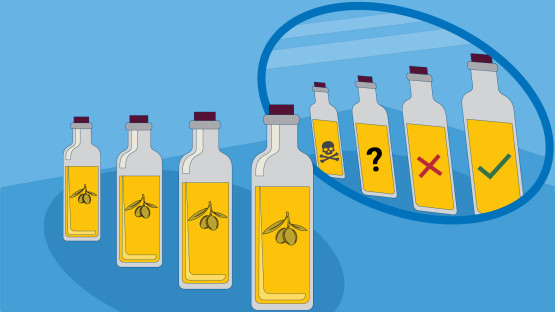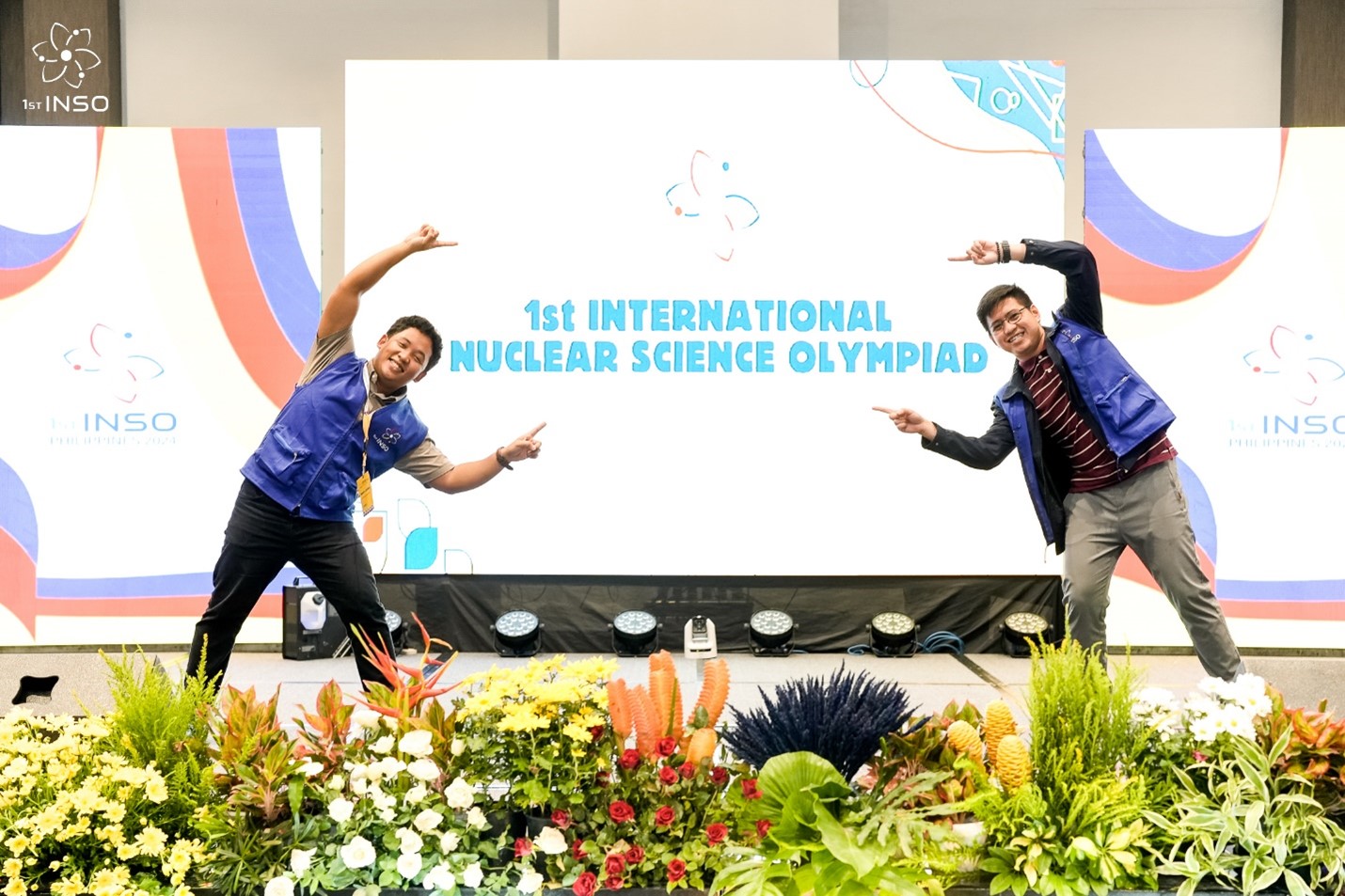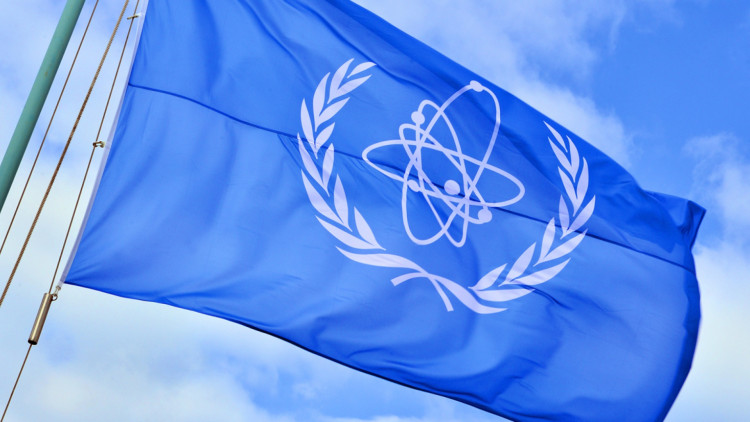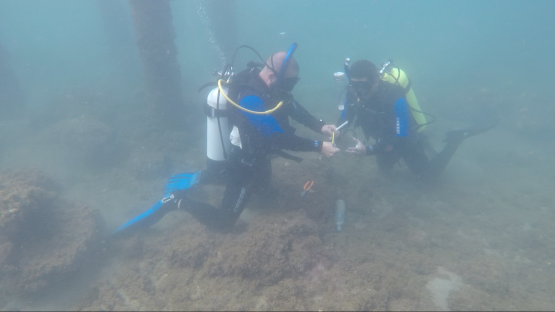When consumers buy food, they cannot always detect food fraud. (Infographic: Mariia Platonova/IAEA)
The adulterating of food products for financial gain, either through dilution, substitution, mislabeling, or other action, has become a lucrative industry. And because food fraud is designed to avoid detection, gauging its financial impacts can be difficult. Experts estimate that food fraud affects 1 percent of the global food industry at a cost of about $10 billion to $15 billion a year, with some estimates putting the cost as high as $40 billion a year, according to the U.S. Food and Drug Administration.
Students celebrate the first International Nuclear Science Olympiad. (Photo: INSO)
Fifty-five high schoolers representing 14 Asian countries participated in an inaugural nuclear science competition earlier this month in the Philippines.
The event was held in the run-up to the United Nations’ International Youth Day, which is celebrated worldwide on August 12 to recognize and encourage the potential of young people as active partners in the global society. The nuclear field presents many opportunities for the next generation of scientists and engineers.
Prime Minister Petr Fiala (center right), ČEZ chief executive officer Daniel Beneš (left), and ministers Zbyněk Stanjura (center left) and Jozef Síkela at a press conference on July 17. (Photo: Czech Republic)
Korea Hydro & Nuclear Power is now in discussions with the Czech Republic for construction of two nuclear units at the Dukovany site and possible new energy sources at Temelín, the country’s other nuclear power facility.
IAEA director general Rafael Mariano Grossi delivers his opening address at the International Conference on Nuclear Knowledge Management and Human Resources Development. (Photo: Dean Calma/IAEA)
Industry leaders from around the globe met this month to discuss the talent development that will be necessary for the long-term success of the nuclear industry.
The International Conference on Nuclear Knowledge Management and Human Resources Development, hosted by the International Atomic Energy Agency, was held in Vienna earlier this month. Discussed there was the agency’s forecast for nuclear capacity to more than double—or hopefully triple—by 2050 and the requirement of more than four million professionals to support the industry.
Researchers take samples of a microorganism that could produce toxins. (Photo: CEAC)
Oceans link all the continents of the world, and fish don’t respect boundary lines. So it’s fitting that a global organization—the International Atomic Energy Agency—is helping nations detect and monitor both plastic pollution and biotoxins in marine algae that can lead to outbreaks of contaminated seafood.
Ukraine's Zaporizhzhia nuclear power plant, prewar. (Photo: Energoatom)
An external radiation monitoring station was taken out by shelling and fire near the Zaporizhzhia nuclear plant in Ukraine the last week of June.
This brings the total to four of the plant’s 14 radiation monitoring sites that are out of commission, further reducing the effectiveness of its off-site capability to detect and measure any radioactive release during an emergency, said IAEA director general Rafael Mariano Grossi.
Rafael Mariano Grossi addresses the Nuclear Pools' Forum in Zurich. (Photo: D. Candano Laris/IAEA)
International Atomic Energy Agency director general Rafael Mariano Grossi was in Switzerland last week to talk with insurance executives at the Nuclear Pools’ Forum about the potential of nuclear power.
Release of sterile mosquitoes on Captiva Island in Lee County, Fla. (Photo: LCMCD)
Sterile mosquitoes are being used to reduce the population of insecticide-resistant Aedes aegypti mosquitoes in Fort Myers, Fla., which can spread viruses including dengue, yellow fever, Zika, and chikungunya.
The Zaporizhzhia nuclear power plant. (Photo: Energoatom)
An official from Russia’s state-owned nuclear power company Rosatom said this week that there are no current plans to reopen the Zaporizhzhia nuclear power plant in Ukraine.
Data from Fukushima ALPS-treated water discharge. (Image: IAEA)
An International Atomic Energy Agency task force has confirmed that the discharge of treated water from Japan's Fukushima Daiichi nuclear power plant is progressing in accordance with the plan approved by Japan’s Nuclear Regulation Authority.















